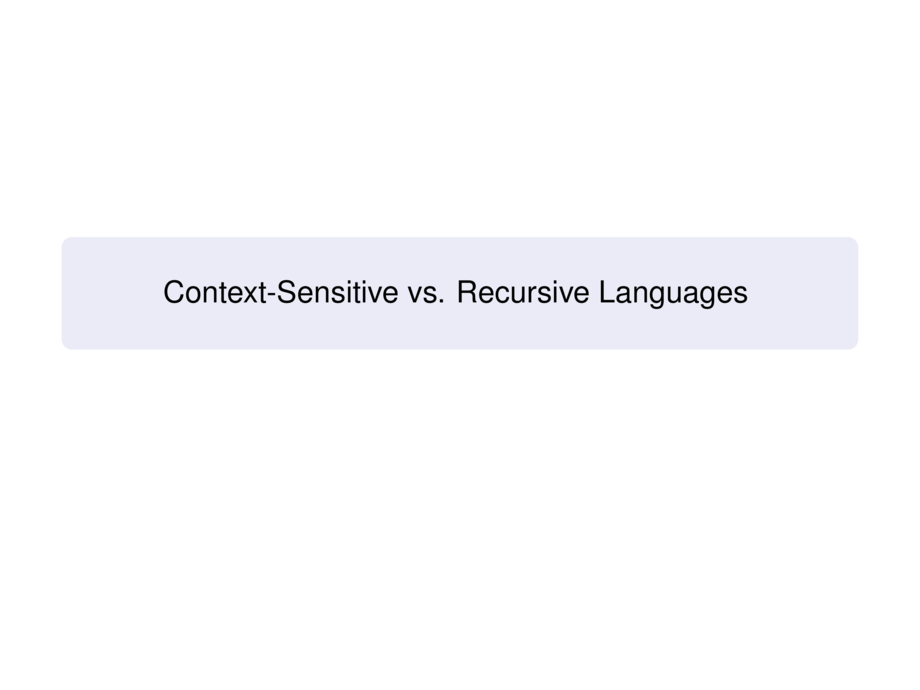



































































































28/43
% \begin{frame}
% \frametitle{Complement of Context-Sensitive Languages}
%
% \begin{block}{Theorem}
% For context-sensitive $L$, also $\overline{L}$ is context-sensitive.
% \end{block}
%
% \begin{block}{Idea of Immerman and Szelepcs\'enyi (1987)}
% Let $M$ be an LBA that accepts $L$.
% \pause\medskip
%
% \emph{Goal:} construct LBA $N$ such that $w \in L(N) \iff w \not\in L(M)$.
% \pause\medskip
%
% Nondeterministic computation of $M$ for $w$ can be seen as a tree.\\
% The nodes are the program states (configurations).
% \pause\medskip
%
% Idea: when \alert{$N$ is started on input $w$}, then $N$ does
% \begin{itemize}\setlength{\itemsep}{0pt}
% \item breadth-first search through computation tree of $M$ for $w$
% \item if tree contains no accepting configuration, then \alert{$N$ accepts}
% \end{itemize}
% \pause
% \emph{Problem:} how to do this search with linear-bounded memory?
% \end{block}
% \end{frame}
\themex{Context-Sensitive vs. Recursive Languages}

